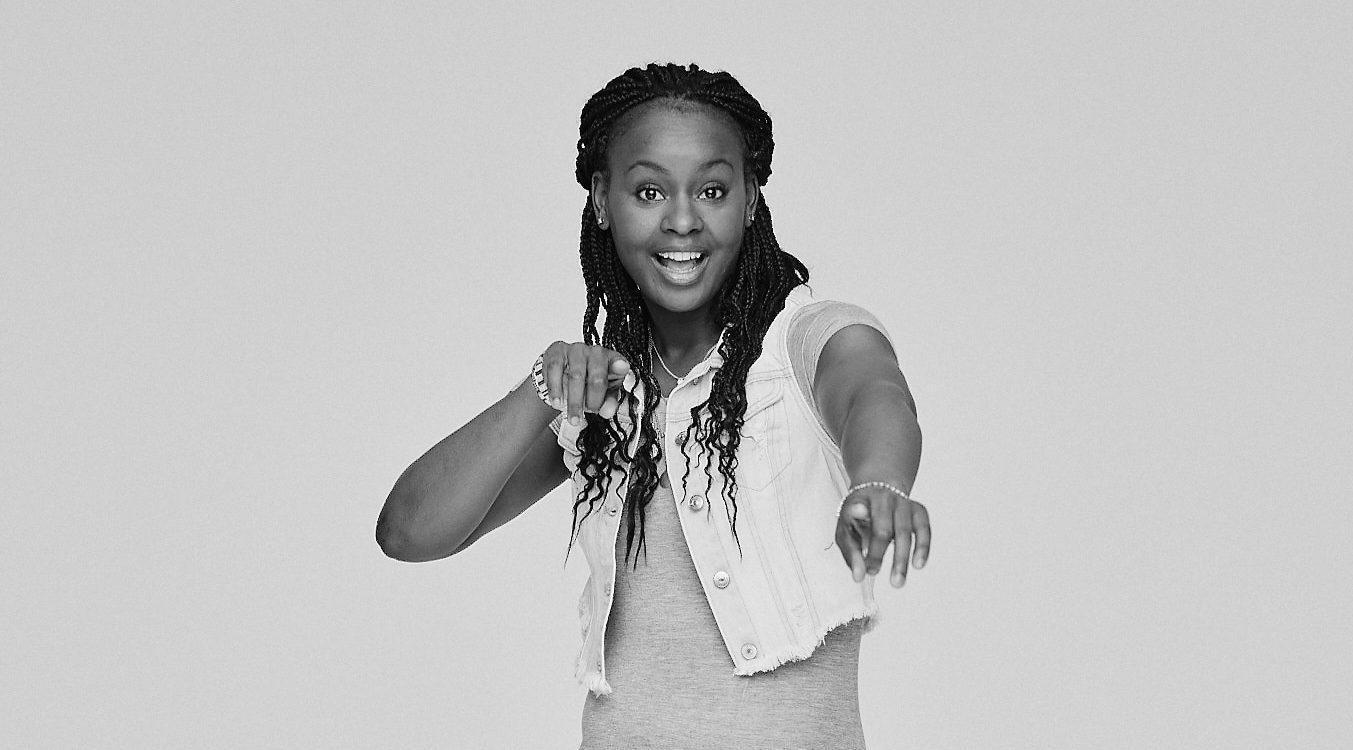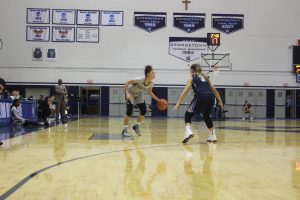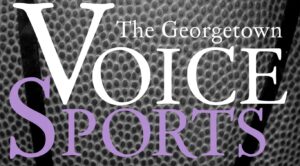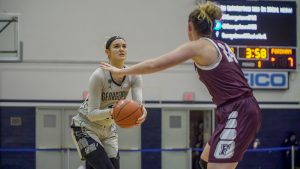Seven years after graduating from Georgetown, Sugar Rodgers is once again a Hoya. Now a WNBA champion and published author, she brings a wealth of personal and professional experience to her new role as assistant coach of the women’s basketball team.
Rodgers played at Georgetown from 2009 to 2013, where she was named to First Team All-Big East all four seasons and propelled the team to national rankings for the first time in 15 years. After graduating in 2013, Rodgers was drafted by the Minnesota Lynx, where she won a WNBA title in her first year. She then played with the New York Liberty and most recently, the Las Vegas Aces in her decade-long professional career.
Coming onto the coaching staff for the 2022 season, Rodgers views her return as a chance to give back to a program close to her heart and mentor younger athletes at the institution that readied her for a professional career in basketball.
“I don’t want to just build basketball relationships, I want to build lifetime relationships with the girls. Though I should say ‘young ladies,’” she said in an interview with the Voice.
One of the benefits of having Rodgers on staff is her experience as not just an athlete, but also as an undergraduate and master’s student at Georgetown. She sat in the same classrooms as her current players and calls Washington, D.C. home. She has an acute sense of the challenges Georgetown athletes face, including the immense privilege of the student body and the university’s competitive environment, which often places first-generation and low-income students at a disadvantage.
In 2015, the NCAA GOALS study found that 14 percent of Division I student athletes were first-generation college students. While 12 percent of white student athletes report being first-generation college students, that percentage is double for student athletes of color. That year, only 47 percent of first-generation students “strongly agreed” that they would have attended a four-year college if they were not an athlete, while 62 percent of non-first-generation students strongly agreed. Athletic talent is just one part of the larger picture of fitting in.
“I started going to therapy when I came to Georgetown, because it was a culture shock for me,” Rodgers said.
The 2019 edition of the GOALS study measured that 50.7 percent of incoming female first-year athletes indicated that they were “frequently overwhelmed” by all they had to do in the past year, contributing to an increasing trend. While female student athletes feel more overwhelmed by their commitments than male athletes, they are less likely to feel comfortable talking with their coaches about mental health issues or satisfied with the mental health care they receive. Rodgers’s experience at Georgetown gives her awareness of a problem that college students face across the country.
Although Rodgers is now known for her athletic fame, success never came easy for her. Growing up in Suffolk, Virginia, Rodgers’s family faced extreme poverty. In her recently published memoir, They Better Call Me Sugar: My Journey from the Hood to the Hardwood, Rodgers recalls her neighborhood having a strong police presence, yet a lack of a park or public space to gather. Athletics offered Rodgers an opportunity to pursue an education she would otherwise have had limited access to, and that few in her community had the resources to pursue.
“You would have never thought I would go to Georgetown University, growing up in the projects,” Rodgers recounted.
Rodgers has long been passionate about helping young athletes navigate the challenges of being first-generation college students (a disappearing demographic in the NCAA). Her book builds on a project she started as an undergraduate.
“I did it as a therapeutic thing here at Georgetown, in an independent study class that I had,” Rodgers explained of her first draft. “I was like, I really want to write a book, because I know there’s someone out here going through some of the same things that I’m going through.”
Her openness about both her positive and trying experiences on the Hilltop demonstrates Rodgers’s care as a coach and a mentor for the players she interacts with. With her firsthand understanding of student life at Georgetown, she is in a singular position to pass along wisdom to future generations of student athletes.
“Once I got here and had my experience, I was like, ‘I need to be sharing this. I need to get it out,’” she said.
While Rodgers’s readjusts to collegiate basketball, she looks to take “one day at a time.” She joins the staff of head coach James Howard, who, according to Rodgers, balances her intensity with a more “mellow” and laid-back style. Rodgers likes to get involved on the court, taking a hands-on approach to coaching that often finds her participating in drills with the team.
“I’m one of the youngest staff members,” Rodgers said. “And I still can get out here and do a lot of things.” She proved that just last year by playing in the WNBA finals.
Although the Hoyas enter the season ranked ninth in the Big East Coaches’ Poll, Rodgers is confident that the team is being underestimated. “Just looking and being here and actually being on the court and working with these girls and seeing them get better, I don’t think so,” she said, pointing to their off-court unity. “It’s great to have great team chemistry, because that’s how you win ball games.”
It is a testament to the Georgetown program that they can regain one of their most successful graduates and telling that Rodgers would seek out a university position in addition to her more prominent new role as an assistant coach for the Las Vegas Aces. Rodgers’s return to the Hilltop demonstrates her commitment to basketball and coaching as a way to impact individual lives. Her hiring will hopefully develop a team that can challenge the best in the Big East and is ready to take on life off the court and beyond Georgetown.
As the anticipation for the coming season builds, Rodgers is grateful to return to Georgetown. She recognizes that coaching is an opportunity that few people receive, and is already sharing her insights with the players.
“I tell them everyday I come in, like, ‘Georgetown saved my life, so take advantage of this opportunity you have now and don’t take it for granted.’”






